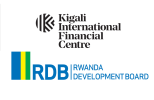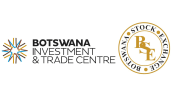Understanding the Fluctuations in Nigeria’s Stock Market
The Nigeria Stock Market is a vibrant and dynamic entity. It plays a crucial role in the country’s economy.
However, like any other stock market, it experiences fluctuations. These fluctuations can be influenced by various factors, both local and global.
Understanding these fluctuations is key to developing effective trading strategies. It also aids in making informed investment decisions.
In this article, we delve into the causes of these fluctuations. We also explore how they impact the Nigeria stock market prices and offer insights into market analysis.
The Role of the Nigeria Stock Exchange in the Economy
The Nigeria Stock Exchange (NSE) is a key player in the country’s financial landscape. It facilitates the buying and selling of stocks and other securities.
The NSE also provides a platform for companies to raise capital. This aids in economic growth and development.
Moreover, the performance of the NSE often reflects the overall health of the Nigeria economy. It’s a barometer for economic trends and investor confidence.
Key Factors Influencing Nigeria Stock Market Prices
Several factors influence the fluctuations in Nigeria’s stock market. These include political events, economic announcements, and global market trends.
The impact of these factors can be direct or indirect. They can cause significant shifts in market prices.
Understanding these factors is crucial for investors. It helps in making informed trading decisions.
Political and Economic Announcements
Political instability can cause market volatility. Elections, policy changes, and political unrest can affect investor confidence.
Similarly, economic announcements such as GDP figures or unemployment rates can sway market sentiment. These indicators reflect the health of the economy.
Oil Prices and Foreign Investment Flows
Nigeria’s economy heavily relies on oil exports. Thus, changes in oil prices can significantly affect the stock market.
Foreign investment flows also play a role. Increased foreign investment can boost market performance, while a decrease can lead to a market downturn.
Currency and Inflation Impact
Currency fluctuations can impact the stock market. A weak Naira can make Nigerian stocks less attractive to foreign investors.
Inflation also influences market prices. High inflation can erode purchasing power, affecting consumer spending and corporate profits.
Trading Strategies Amidst Market Volatility
In a volatile market, having a solid trading strategy is key. It helps investors navigate the market fluctuations.
Strategies should be based on thorough market analysis. They should also align with the investor’s financial goals and risk tolerance.
Basic Strategies for the Nigerian Investor
For beginners, a buy-and-hold strategy can be effective. This involves buying stocks and holding them for a long period.
Another strategy is dollar-cost averaging. This involves investing a fixed amount regularly, regardless of the stock price.
The Importance of Diversification
Diversification is a crucial strategy for managing risk. It involves spreading investments across different assets.
This strategy can help mitigate losses. If one asset performs poorly, others may perform well, balancing the overall portfolio performance.
Market Analysis: A Tool for Navigating Fluctuations
Market analysis is a vital tool for investors. It helps them understand the market’s direction and make informed decisions.
It involves studying past market data. This includes price trends, trading volumes, and economic indicators.
Investors use this analysis to predict future market movements. It helps them plan their trading strategies effectively.
Understanding Market Trends and Performance
Understanding market trends is crucial. It helps investors identify potential investment opportunities.
Performance analysis, on the other hand, helps investors evaluate their investments. It shows how their stocks have performed over a certain period.
Conclusion: Staying Informed and Managing Risks
Staying informed is key to managing risks in the Nigeria stock market. Regular market analysis and understanding of economic indicators are crucial.
Investors should also diversify their portfolios. This helps to spread risk and potentially increase returns.













































